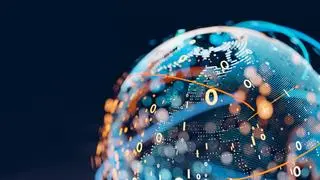In biology, proteins are practically everything. These long chains of amino acid molecules, hundreds of thousands of them, account for most biological activities. As antibodies, they kill invading pathogens; as enzymes they catalyse thousands of reactions, including critical ones such as DNA replication; as hormones, such as insulin, they perform important body functions. They are also building blocks — along with lipids, they form the cell walls.
Now synthetic biology promises man-made designer proteins that are not found in nature. Artificial intelligence is further honing the cutting edge of technology.
Chemical reactions are at the core of all happenings — natural or man-made. For example, if you want to separate iron from the ore, iron oxide, you add carbon or hydrogen to yank away the oxygen and leave behind pure iron. Chemical reactions, in turn, depend on the structures of molecules — more precisely, the location of atoms in a structure. One atom difference in a long chain can make a whole lot of difference. For instance, DNA has just one atom less in its sugar molecule than RNA, but DNA and RNA are wholly different.
Now, therefore, it is possible to guess the shape of the protein needed to solve a particular problem — say, an enzyme to digest plastics. But to make it you would need to know the sequence of amino acids. Guessing this is humanly impossible. That’s where deep-learning enters the picture.
An AI lab called DeepMind, owned by Alphabet, the parent company of Google, has come up with a deep learning tool named ProteinMPNN. It can almost instantly think up (or “hallucinate”) the sequence and combination of some of the 20 amino acids needed to make a protein in a particular shape.
In simple terms, the scientists are saying, “Give me a problem, I’ll give you a protein to solve it.” Imagine the applications of this in drug discovery! It tempts one to dream of a disease-free world.











Comments
Comments have to be in English, and in full sentences. They cannot be abusive or personal. Please abide by our community guidelines for posting your comments.
We have migrated to a new commenting platform. If you are already a registered user of TheHindu Businessline and logged in, you may continue to engage with our articles. If you do not have an account please register and login to post comments. Users can access their older comments by logging into their accounts on Vuukle.